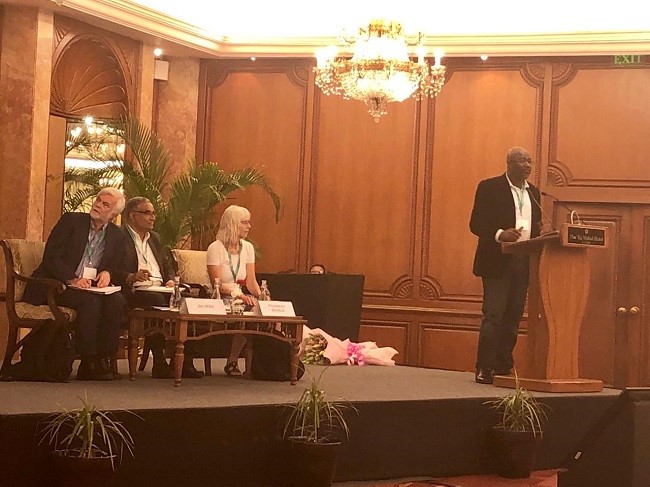Developing countries care about the climate because it affects their ability to pursue and achieve their legitimate development aspirations.

The submission was made by Professor Chukwumerije Okereke, Director, Centre for Climate Change and Development, Alex Ekwueme Federal University, Ebonyi State, Nigeria on Friday, October 4, 2019 in New Delhi, India while addressing a gathering of the Intergovernmental Panel on Climate Change (IPCC) Working Group Lead Authors.
The experts had gathered from September 30 to October 4 to advance their work on the Working Group III contribution to the Sixth Assessment Report (AR6).
Okereke, who represented Nigeria at the forum and who is Coordinating Chapter One of the Report (Introduction and Framing) and the Cross Chapter Working Group on Sustainable Development, spoke at the closing plenary session about the importance of considering climate mitigation in the context of sustainable development.
While listing the developing countries’ aspirations to include access to shelter, energy, clean water, food, healthcare and education, Prof. Okereke argued that, for developing countries, a crucial question was how to ensure that climate change does not prevent them from achieving the standard of living necessary for the well-being of their population.
Chief Host of the meeting and Minister of Environment of India, Prakash Javadekar, expressed his joy that the meeting had gone smoothly. He thanked the lead authors for the huge sacrifice and effort they made to assess the evidence about how the world can most effectively respond to climate change and its impacts.
He urged the lead authors to strive to ensure in presenting their report that they put their key findings and recommendations in a language that will be easy for policy makers to understand. He further urged lead authors not to forget to cover the reports on national climate communications and other relevant documents prepared by developing countries.
IPCC working group lead authors comprise about 250 globally renowned climate experts selected from over 60 countries in the world.
Other Nigerian scientists who are part of the IPCC Working Group III contribution to the AR6: Chioma Daisy Onyige of the Department of Sociology, University of Port Harcourt, Rivers State (Chapter 5: Demand, services and social aspects of mitigation), Ogheneruona Diemuodeke of the University of Port Harcourt (Chapter 10: Transport), and Sanusi Mohamed Ohiare of the Rural Electrification Agency (Chapter 15: Investment and finance).
The third Lead Author’s meeting is slated to hold in April 2020 and the IPCC report will be ready in 2021.
